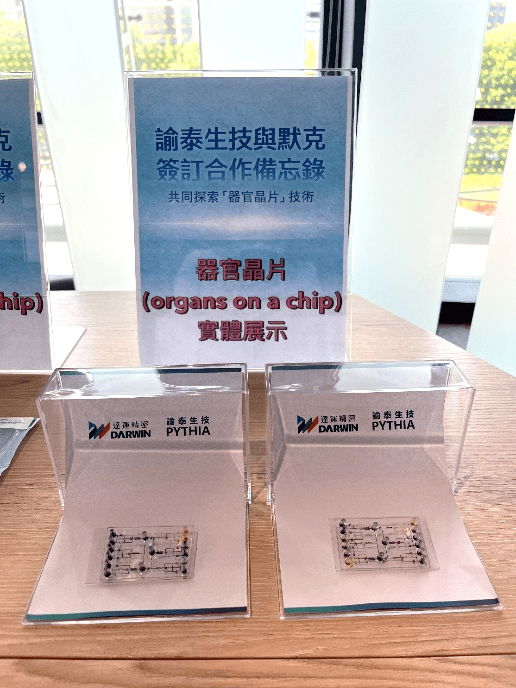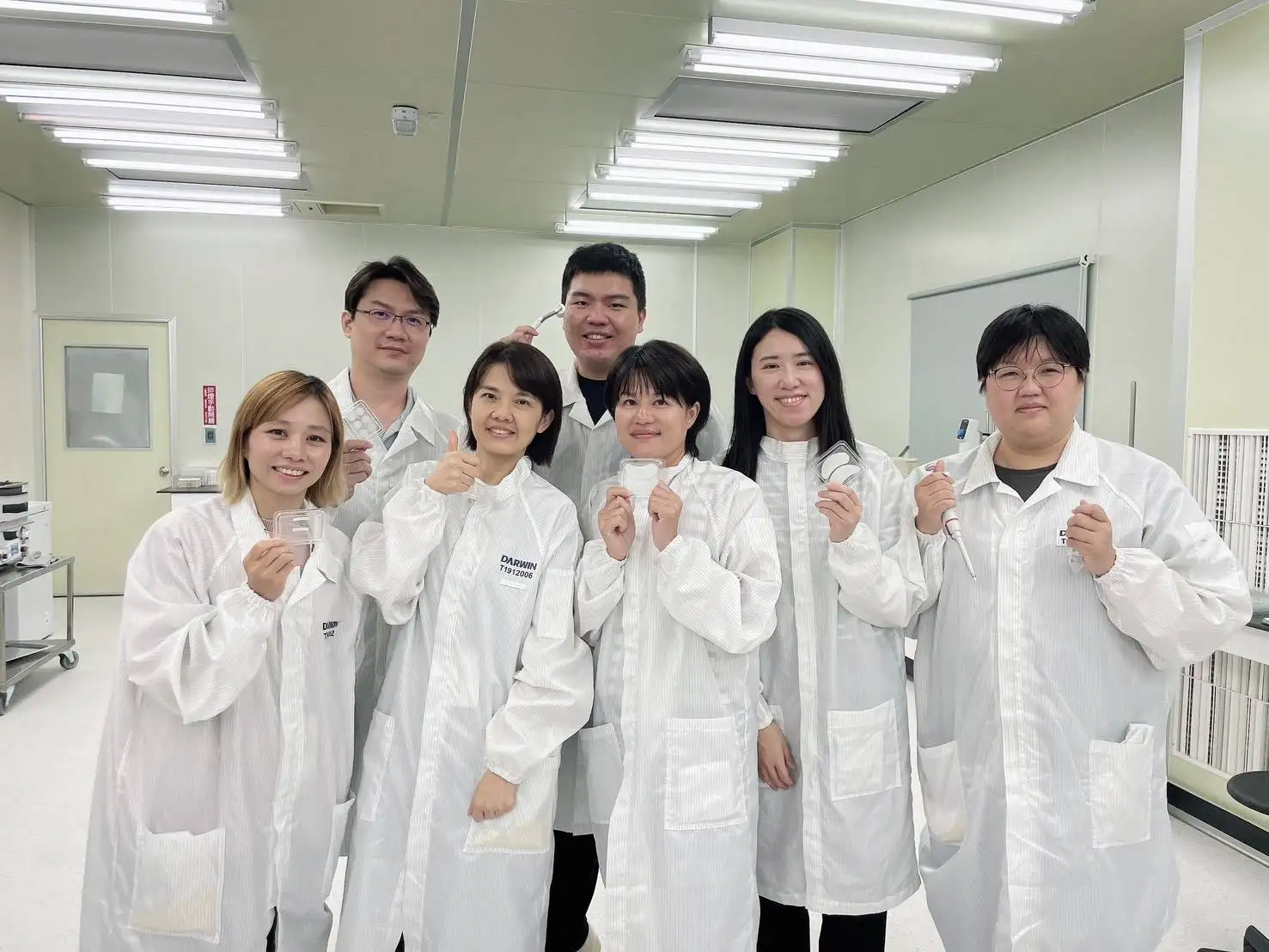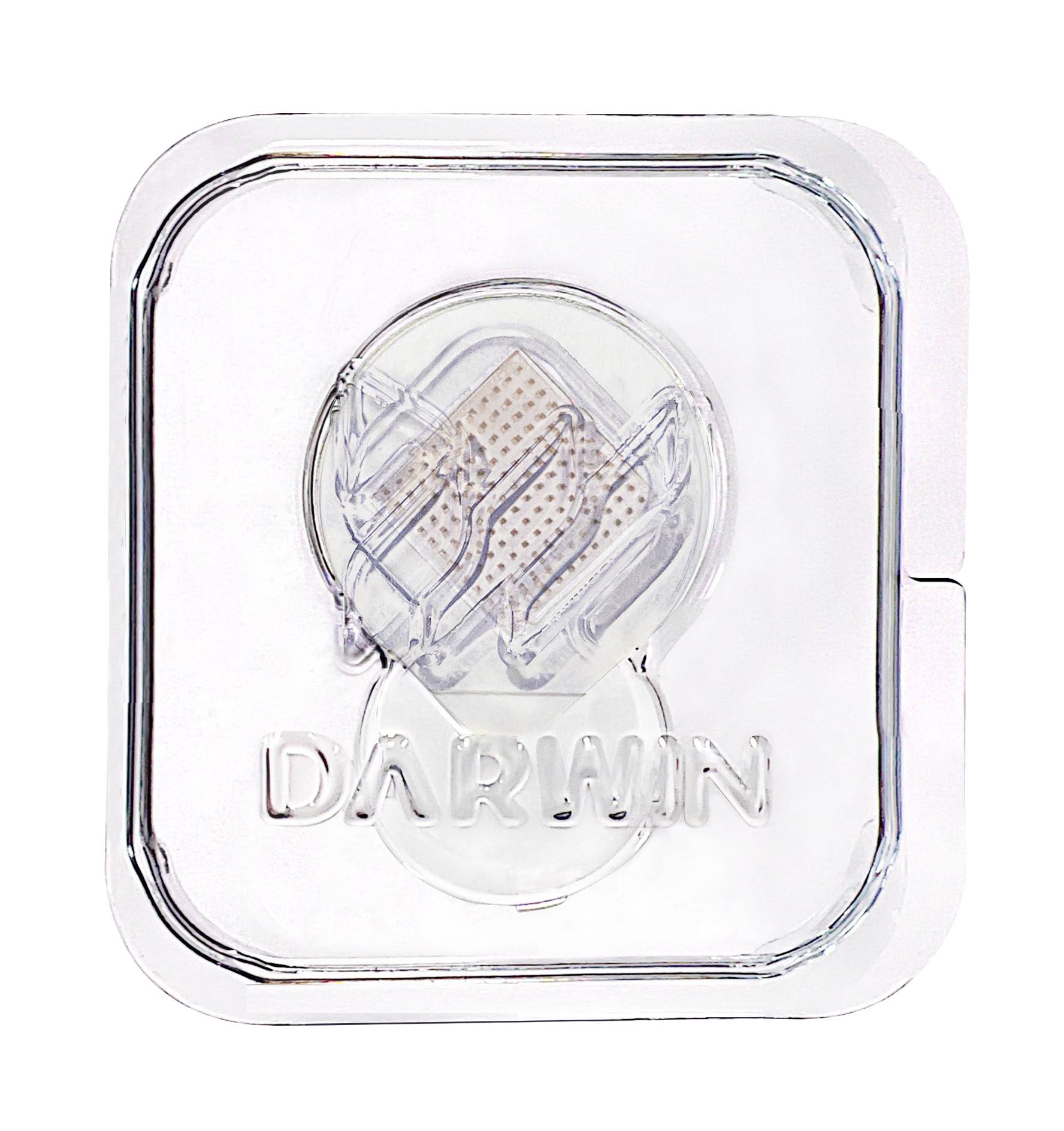
With years of accumulated technical experience in precision machining and electroforming technology, Darwin Precision has branched out into microfluidic chips manufacturing(organ on a chip), assisting Pythia biotech in manufacturing organ chips. Pythia Biotech is a startup company spin off from National Tsing Hua University. The technology transferred comes from the core technology jointly developed by Tsing hua University and Taipei Medical University. It recently signed a memorandum of cooperation with the international giant Merck to jointly develop organ chip technology.
Currently, human cell and animal experiments required for new drug development still have limitations in predicting the efficacy and safety of drugs on humans. Organ-on-a-chip technology can design microfluidics, organoids and bioreactors on a biomedical chip the size of a glass slide, replacing traditional cell and animal experiments, helping to shorten the clinical trial schedule and accelerate new drug development.
In 2019, the European Union jointly established standardized standards for the development of organ chips, using the power of the EU to promote development to reduce the use of experimental animals. In 2022, the US Food and Drug Administration also amended the law so that new drugs no longer need to undergo animal testing. These two standards have driven the development of organ chips around the world. Organ chips can implement a personalized precision medicine drug screening platform and effectively accelerate the development of new drugs. They are also in line with the trend of reducing the use of experimental animals, allowing more patients and organisms around the world to benefit. Darwin Precision has stepped onto this wave of organ-on-a-chip technology trends, leveraging its own technological potential to expand new businesses and explore industry potential.



